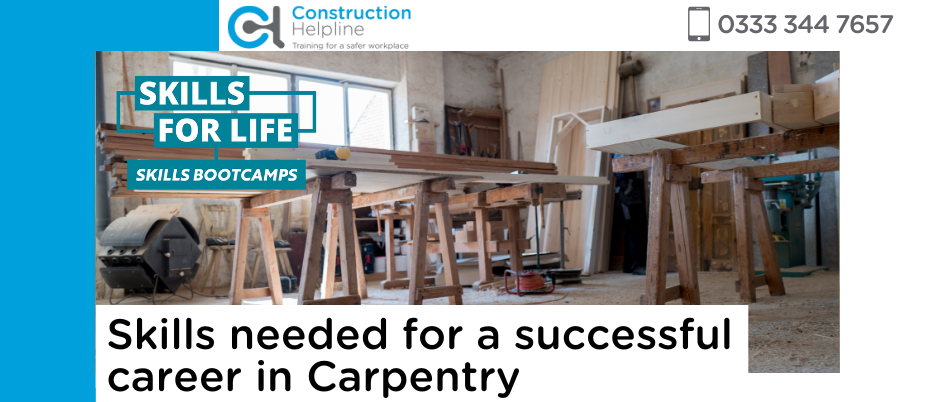A Carpenter’s main role in construction is to repair, construct and put together building frameworks made from wood, which can be in the form of door frames, walls and flooring. But in order to do these tasks with precision and accuracy, there are some essential skills needed to become a great Carpenter in construction – including cutting timber with precision, how to properly hammer a nail safely and measuring pieces of wood accurately. This blog will highlight these skills and hopefully, if you do possess some of these skills already, you will be the UK construction industry’s newest Carpenter!
Skill 1 – Measure timber accurately
Carpenters have to take a lot of measurements when dealing with woodwork, so learning how to correctly read a tape measure accurately is an essential skill to have. There is a variety of tools you will use when measuring wood, including metal squares and tape measures, so Timber being cut accurately is the difference between a job coming out great vs it being poor, especially when handling expensive timber. One of the number one rules when it comes to carpentry is “measure twice, cut once”, so if you follow that mantra, you should be just fine on-site.
Skill 2 – Know how to cut straight OR curved with precision
Once you are able to accurately measure timber, the next essential skill to possess is to then be able to cut wood with precision. Modern construction has moved away from the traditional use of handsaws, as these are prone to cause more mistakes with workers hands/wrists getting tired from cutting. Many carpenters involve the use of power tools as they are more accurate and give you the best chance of the perfect finish.
Skill 3 – Know how to hammer a nail in & remove them … safely!
A hammer is probably the second most recognisable and useful tool to master for carpenters. Having the skill to provide the right amount of power and accuracy when hammering nails into timber is important (with a priority on accuracy over power for the best precision). Removing nails is just as essential as placing them in wood, but both actions must be done knowing the health and safety precautions when working on-site.
Summary
These are just a few of the particular skills needed to be a successful Carpenter, but transferable construction skills are just as important such as attention to detail, working well with your hands and good communication. If you are interested in a career Carpentry, we are providing free, government-funded training available for self-employed learners who are currently working as a Carpenter, with a Blue CSCS Skilled Worker Card available upon the completion of our course. So take the next step in your career today and apply now: https://www.constructionhelpline.com/lp/skills-bootcamps/


